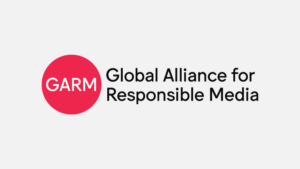Mergers and acquisitions—it’s one way to grow a company beholden to its shareholders. Ad industry holding companies know all about it, given that they regularly acquire and then “hold” what were once independent and innovate agencies.
Earlier this month in what could become the merger of all mergers, Omnicom announced its intentions to acquire Interpublic Group in a deal worth $31 billion. In their official press release, the two giant holding companies capture the essence of the deal from their point of view:
The combined company will bring together the industry’s deepest bench of marketing talent, and the broadest and most innovative services and products, driven by the most advanced sales and marketing platform. Together, the companies will expand their capacity to create comprehensive full-funnel solutions that deliver better outcomes for the world’s most sophisticated clients.
Did you hear that? Comprehensive full-funnel solutions are on the way.
In all seriousness, I do wonder what the leaders of the two massive holding companies see in each other and how a merger might favorably shape their futures together.
Brain Steinberg at Variety points out that, “Analysts see a new world in which data mining and greater control over ad distribution and placement becomes more critical than maintaining traditional creative agencies.”
He also reports that John Wren, Omnicom’s CEO, believes that “every company in our business needs to make investments to stay at the cutting edge of that (AI).” Also, advertisers increasingly need real-time data about how commercials are performing and how consumers are reacting to them, said Philippe Krakowsky, Interpublic’s CEO, and a combined entity will be better able to provide all of that.
If we take them at their word, what matters to THE BIGS is comprehensive full-funnel solutions, data mining, improvements to ad distribution, investments in AI, and real-time data.
Do you know what is conspicuously absent from their desires and declarations? There’s a nod to a “deep bench of talent” but nothing about a renewed focus on finding, cultivating, and rewarding talent. There’s something else missing. A renewed concern for the customer. People want their privacy protected and the industry is on the wrong side of this problem. I’d argue that people would also appreciate and respond to better advertising. Again, the industry is on the wrong side of this problem.
We don’t need dramatic pronouncements like The Creative Revolution is Officially Over. But it pretty much is. Wouldn’t you say? The proposed merger may be beneficial to the stockholders of each firm, but if the deal fails to also benefit the 100K-plus workers at the newly enlarged Omnicom and the millions of people who these workers reach with corporate-sponsored messages, then it’s hard to see how it’s a good idea.
Not So Fast…Jim Jordan Launched A Probe
For reasons all his own, US Rep. Jim Jordan (R-Ohio) on Wednesday launched a probe into the merger of the two advertising giants over their ties to “an anti-conservative cartel” that sought to “defund news outlets,” The New York Post reported and editorialized.

Omnicom and Interpublic Group were founding members of the supposedly left-leaning World Federation of Advertisers (WFA) and its now-defunct Global Alliance for Responsible Media (GARM) initiative. In August, the House Judiciary Committee, chaired by Rep. Jordan, argued that GARM “has deviated far from its original intent, and has collectively used its immense market power to demonetize voices and viewpoints the group disagrees with.”
Now, the House wants to know what precautions Omnicom and Interpublic have taken to avoid repeating GARM’s “anticompetitive history.” The ad giants have also been asked to disclose any “politically partisan brand safety initiatives” with which their company is involved. I have to laugh. One man’s politically partisan brand safety initiative is another man’s attack on free speech. That this has any bearing on the case is also laughable, but not funny. The ad industry operates with next to no oversight or regulation, which opens it to corruption and malfeasance. The now-defunct Global Alliance for Responsible Media isn’t the problem. Lack of meaningful regulation that would ensure or strengthen consumer protections and conditions for workers is the problem.
If elected officials cared about protecting their constituents they’d investigate and then regulate an out-of-control ad tech industry. They’d address deceptive influencer marketing practices, greenwashing, dark patterns, automatic renewals, negative social stereotyping, and the need for stronger protections for children and teens online. They’d prevent discriminatory hiring practices in an industry known for it. And they’d examine whether or not the merger in question creates a business environment where anti-competitive practices can spread.
But we don’t live in that world, do we? I’m afraid the answer is no, we don’t. We live in a world where labor is unorganized and consumers are unprotected from predatory practices. Knowing how meaningful solutions are not coming from the top, I’d love to see a growing group of information activists use advertising to persuade people who make advertising to abide by higher standards. Global Alliance for Responsible Media was an attempt at industry self-regulation. What else might help to grow the industry’s standards and professional practices along with its bottom line?




Leave a Reply